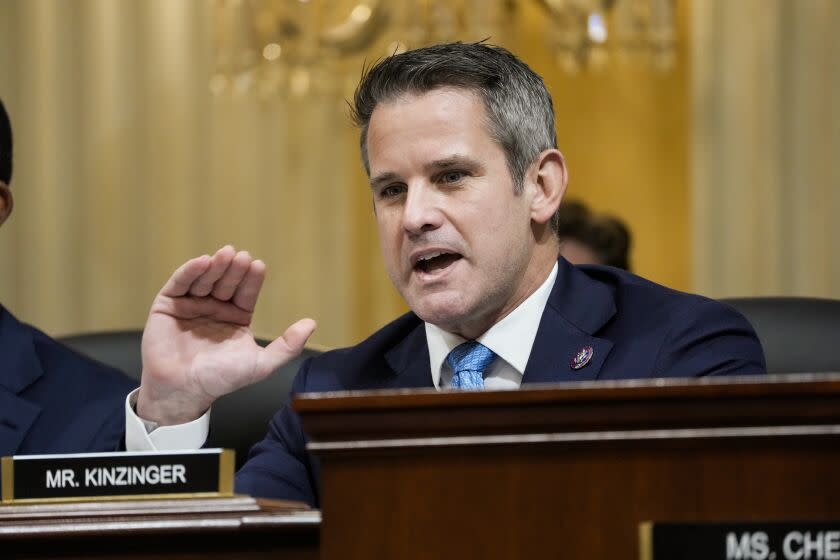Trump signed order for immediate 'large-scale troop withdrawals' from Afghanistan after election loss

After the 2020 election, then-President Trump rushed to sign an immediate withdrawal order to pull troops out of Afghanistan in what a member of the congressional committee investigating Jan. 6, 2021, described as evidence he knew his term was coming to an end.
“Knowing that he had lost and that he had only weeks left in office, President Trump rushed to complete his unfinished business,” Rep. Adam Kinzinger (R-Ill.) said. “One key example is this: President Trump issued an order for large-scale troop withdrawals.”
In swiftly signing the order on Nov. 11, 2020, to withdraw all American troops from Afghanistan and Somalia before incoming President Biden’s inauguration, Kinzinger argued, Trump “disregarded concerns about the consequences for fragile governments on the front lines of the fight against ISIS and Al Qaeda terrorists.”
Military and national security leaders panned the order in recorded interviews with Jan. 6 investigators.
“It is odd. It is non-standard,” Chairman of the Joint Chiefs of Staff Gen. Mark Milley told the panel. “It is potentially dangerous. I personally thought it was militarily not feasible nor wise.”
Gen. Keith Kellogg, former Vice President Mike Pence's national security advisor, said he told the White House Presidential Personnel Office and Douglas Macgregor, a former advisor to the Defense secretary, “that if I ever saw anything like that, I would do something physical, because I thought what that was doing was a tremendous disservice to the nation.”
Kellogg said an “immediate withdrawal” from Afghanistan would’ve been “catastrophic” and a “debacle.”
During the portion of the committee’s business meeting that Kinzinger led, the panel highlighted interviews and depositions from top Trump administration officials indicating that Trump was fully aware that he had lost the presidential election to Biden and had even conceded as much in private.
“I remember maybe a week after the election was called, I popped into the Oval [Office] just to, like, give the president the headlines and see how he was doing,” former White House communications director Alyssa Farah told the committee in an interview clip. “And he was looking at the TV and he said, ‘Can you believe I lost to this effing guy?’”
This story originally appeared in Los Angeles Times.

